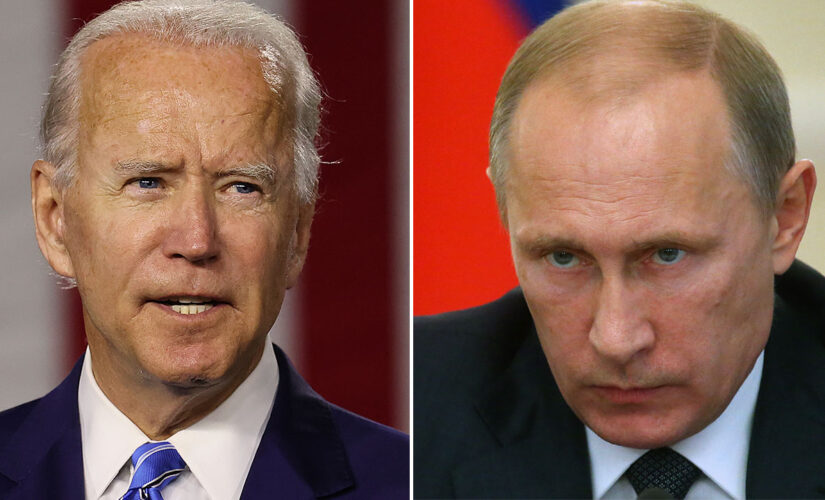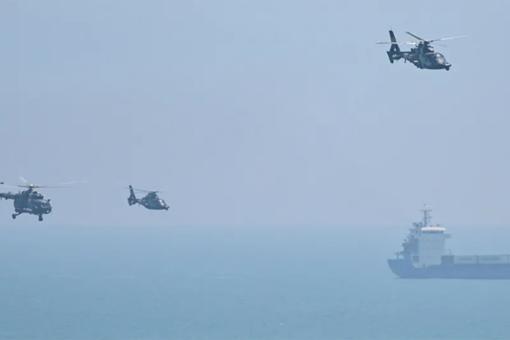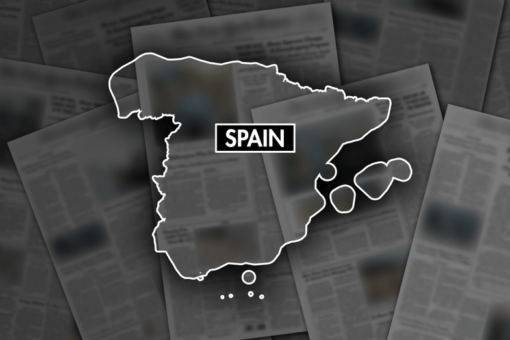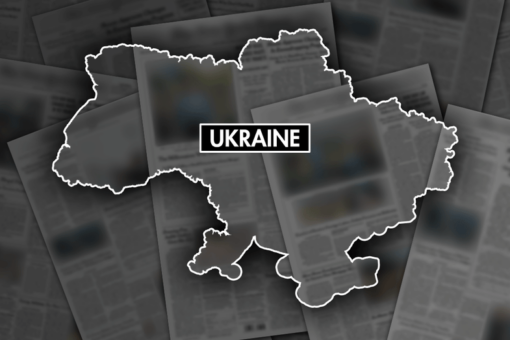The Russian troops assembled at its border with Ukraine send a clear signal to Kyiv, Europe and the United States that Russia might finally be ready to reincorporate Ukraine into Russia’s sphere of influence, severely increasing the risk of a major military escalation in Europe’s eastern frontier.
Ukraine’s defense minister, Oleksiy Reznikov, warned of a “bloody massacre” if Russia dared to invade Ukraine and the White House signaled that there would be a “real cost” to any Russian aggression against Ukraine. President Biden spoke with Russian President Vladimir Putin in a high-stakes phone call to de-escalate the crisis. Biden warned Putin that the U.S. is prepared to impose “severe consequences,” including stifling economic sanctions, if Russia were to violate Ukraine’s sovereignty and territorial integrity. National security adviser Jake Sullivan told reporters after the phone call that, in order to deter Russian aggression, “things we did not do in 2014 we are prepared to do now.” Biden made no concessions or assurances toward Ukraine’s future in NATO.
President Biden also spoke with his fellow NATO and European Union allies to ensure transatlantic unity against the threat posed by Russia.
Russia currently has more than 90,000 troops massed on the border with Ukraine, and U.S. intelligence estimates that nearly 175,000 could be deployed for a full-scale invasion in early 2022. Satellite imagery also has revealed the buildup of heavy military equipment and artillery along the border. Putin’s latest moves are being taken very seriously in Kyiv and the Ukrainian defense establishment has been clamoring the U.S. for greater military assistance.
BIDEN-PUTIN CALL: ANALYSTS SAY US PRESIDENT MAY STILL HAVE A CHANCE TO DERAIL UKRAINE INVASION
Russia’s military buildup against Ukraine comes amid the backdrop of heightened tensions in the region after the manufactured border crisis between Poland and Belarus, where Belarusian President Alexander Lukashenko, a close ally of President Putin, was encouraging migrants to swarm the border with Poland to foment chaos and undermine European Union solidarity over the divisive issue of immigration.
The question confronting policymakers is what Vladimir Putin’s true intentions are and would he take such bold action in the face of stiff and united condemnation from the U.S. and European Union allies.
President Biden and Russia’s President Vladimir Putin meet for talks at the Villa La Grange in Geneva, Switzerland, on June 16, 2021. (Mikhail Metzel/TASS)
Putin appears emboldened on the international stage and faces very little opposition to his rule at home. His main rival, opposition leader Alexei Navalny, was poisoned and then imprisoned for his activism and dissent while Putin’s political party, United Russia, won a clear majority in the September elections to the lower house of parliament, known as the Duma. Putin’s saber-rattling is seen as a coercive signal to the West that any further actions by Ukraine to move closer to NATO membership is a redline and wants guarantees that Ukraine will not join the alliance, nor will any NATO troops be stationed along the border with Russia.
The “fortress under siege” mentality that defines Putin’s worldview, and Russian foreign policy historically, took on a new form after the Cold War. With the Soviet Union defeated, it called into question the very mandate of NATO’s existence, that is, to oppose Communism throughout the world. U.S. leaders assured Russia that NATO would not expand eastward in the 1990s.
“The Russians are angry at the West’s violation of a pledge–made at the Cold War’s end, to induce their withdrawal from East Germany–not to expand NATO eastward. They are distrustful because NATO has repeatedly gone beyond its defensive charter to bomb countries into regime change, from Serbia to Libya,” professor David English, director of Central European Studies at the University of Southern California, told Fox News.
PUTIN SETS WORLD ON EDGE AMASSING RUSSIAN TROOPS ALONG UKRAINE BORDER
Any incursions into eastern Ukraine would fit into Putin’s playbook of having a high tolerance for risk if it can achieve what he wants. Georgia was on a similar path to possible E.U. and NATO membership in 2008 when Russia invaded in support of two separatist republics. The war with Georgia prevented further NATO ascension for Tbilisi and kept Georgia internally fractured and within Russia’s historic sphere of influence.
“NATO ascension historically often precedes E.U. ascension and once Ukraine is in NATO, its pro-Western path is locked in, so everything must be done to prevent this from happening because it becomes difficult to unwind the process,” Matthew Orr, Stratfor Eurasia analyst at RANE, told Fox News.
The simple fact remains: Putin’s designs in Ukraine are nothing new, and he has made his views on Ukraine’s place in the world very clear over the course of his 20 years in power. Putin told President George W. Bush at a NATO summit in 2008 that Ukraine was not a country. In a 5,000-word article published in July 2021, Putin does not equivocate in articulating his worldview of historical grievance which includes Ukraine as an integral part of the Russian Nation. Putin maintains that Russians and Ukrainians are “one people” and questions the legitimacy of Ukraine’s borders.
Putin turned hostile rhetoric into action in 2014 after pro-Russian Ukrainian President Viktor Yanukovych was ousted in the “Revolution of Dignity” over his failure to forge closer economic ties with the E.U. Yanukovych fled to Russia and for a brief moment there was hope that Ukraine could finally orient itself toward the West. As Ukrainians demanded closer links to Europe and with a weak transitional government in Kyiv following the revolution, Russia took advantage of Ukraine’s vulnerability and invaded and eventually annexed the Crimean Peninsula in March 2014. Russian special forces, aided by pro-Russian separatist forces in the southeast, invaded the Donbas region of Ukraine and declared an independent “People’s Republic.” The frozen conflict in eastern Ukraine killed over 14,000 people and left millions more displaced.
It’s unclear whether the threat of crippling sanctions from the Biden administration will have any impact or change Putin’s behavior.
(Nic Antaya/Getty Images | Mikhail Svetlov/Getty Images )
In Putin’s mind, it would be unacceptable to have a stable and democratic Ukraine on Russia’s border.
BIDEN ‘SO WEAK,’ NOT EQUIPPED FOR FACE OFF WITH VLADIMIR PUTIN: LAURA INGRAHAM
“Putin needs this conflict to hang over Ukraine because he can’t let it become a stable functioning state, which would set a dangerous precedent for Russia. If Ukraine can become pro-Western and democratic then the people of Russia and Belarus might want to go down the same path, which is a threat to Putin’s rule,” Orr said.
Putin’s imperial mindset is grounded in the belief that the collapse of the Soviet Union was, as he once put it, the greatest geopolitical catastrophe of the 20th century. When the Soviet Union fell apart in 1991, it lost many of its constituent republics, including Ukraine. It seems obvious that Putin’s grievances surrounding the collapse of the Soviet Union and the humiliation it experienced in the turbulent 1990s is foundational to his grand strategy of turning Russia into a great power once again and peer competitor of the United States.
“Putin understands that Ukrainian statehood and the Ukrainian national idea pose a threat to Russian imperialism,” said Danylo Lubkivsky, director of the Kyiv Security Forum.
After the takeover of Crimea and the invasion of the Donbas, Russia began an incremental process of integrating the stolen territory into Russia’s sphere of influence. The occupied territories switched to the Russian ruble and Moscow started to provide substantial economic assistance to the beleaguered areas.
Russian President Vladimir Putin attended a flower-laying ceremony at the Russian Civil War memorial on Unity Day, in Sevastopol, Crimea, on Nov. 4, 2021.
(MIKHAIL METZEL/SPUTNIK/AFP via Getty Images)
The difference between Russia’s sudden invasion and capture of Crimea in 2014 and the current environment is the steady and unrelenting resolve of the Ukrainian people and its armed forces. Ukraine’s military is far more advanced in its capabilities than it was when Russia invaded in 2014, with greater military assistance from the U.S. Russia’s actions since the invasion of Crimea and Donbas has had the counterproductive effect of uniting the Ukrainian people against Russian domination.
CLICK HERE TO GET THE FOX NEWS APP
It’s unclear whether the threat of crippling sanctions from the Biden administration will have any impact or change Putin’s behavior. Sanctions imposed on Russia after its invasion of Crimea did little to change Putin’s calculus.
It might be a tough concession to make, but assurances that Ukraine will not join NATO might be the best possible solution to ease tensions. Many across Europe already believe that it would be a dangerous and provocative move to incorporate Ukraine into the military alliance and that bringing in other divided or unstable countries made little positive contribution to European and Western security.
“So why not acknowledge that reality in an agreement with Russia, thereby defusing this crisis and allowing Europe to focus on the main problems plaguing Ukraine–poverty and corruption? Ukraine is one of the poorest countries in Europe, at the bottom of the list with Moldova and Kosovo. And Ukraine will never be a strong, stable country fit to join the EU and NATO so long as it languishes economically, professor English argues.




